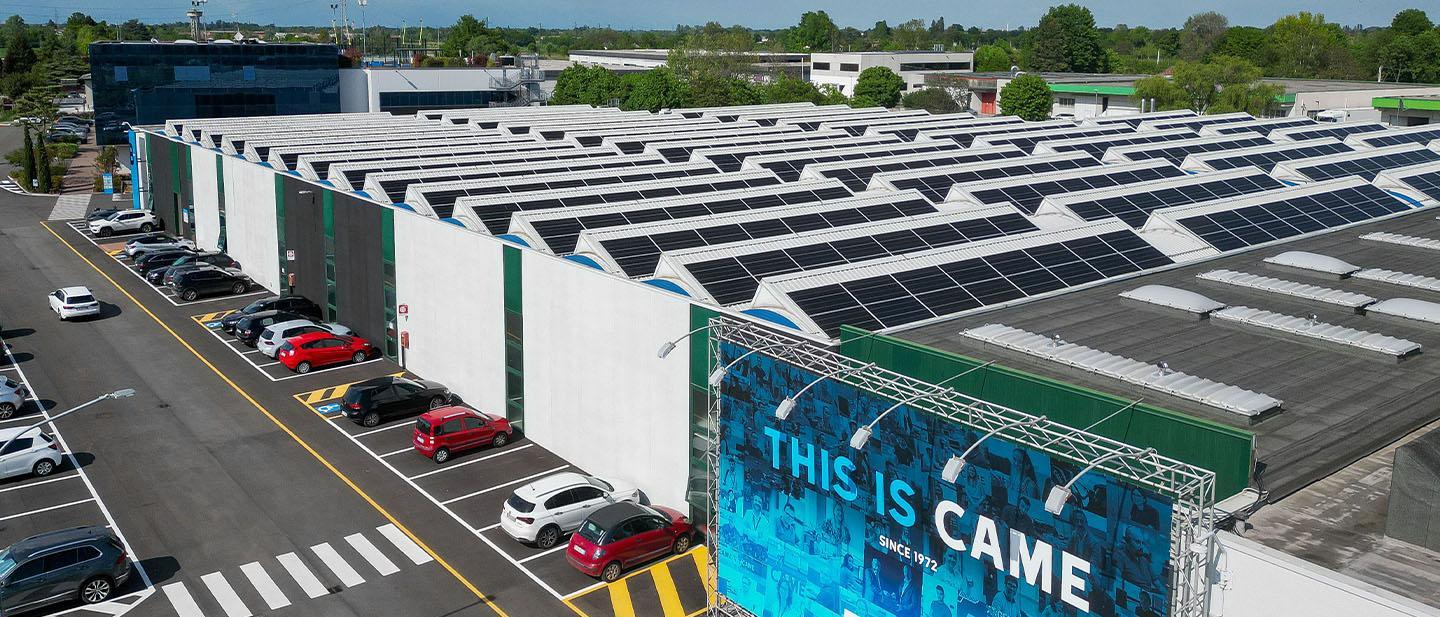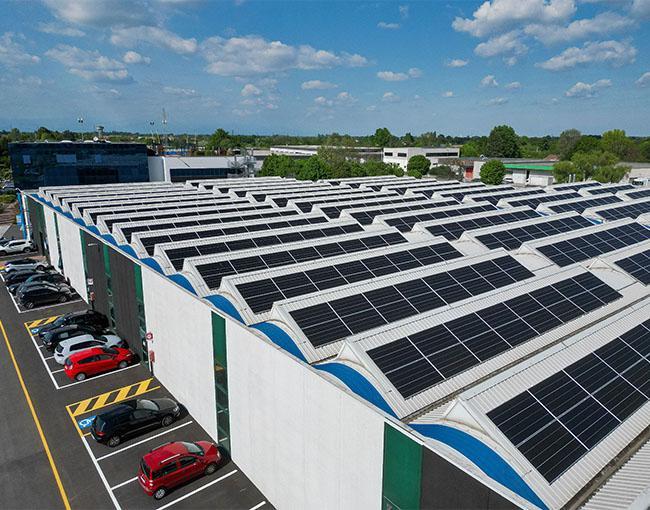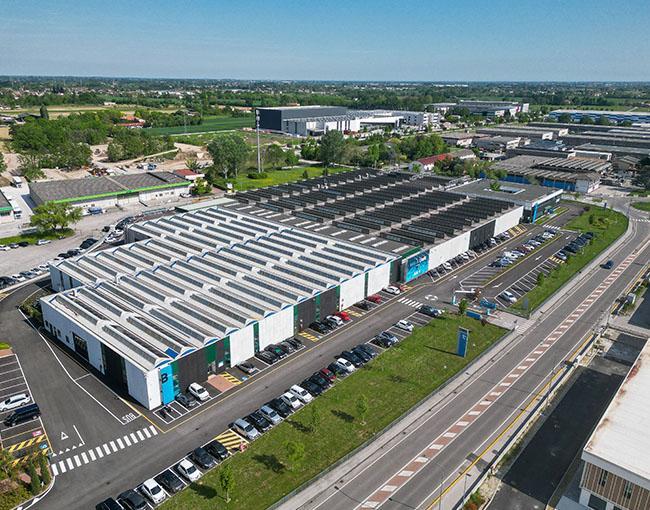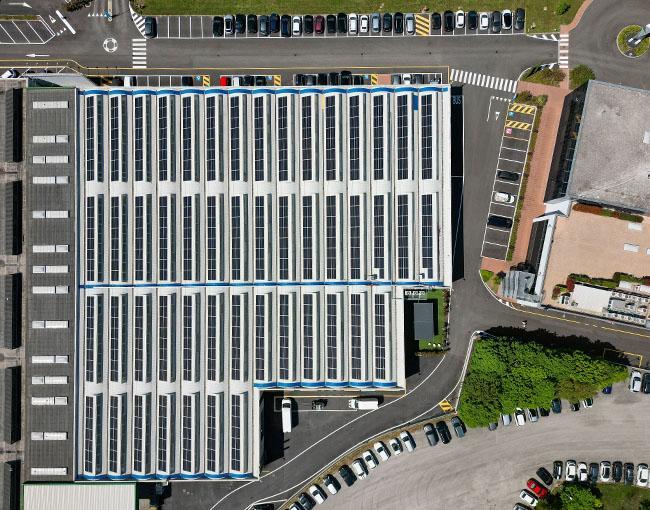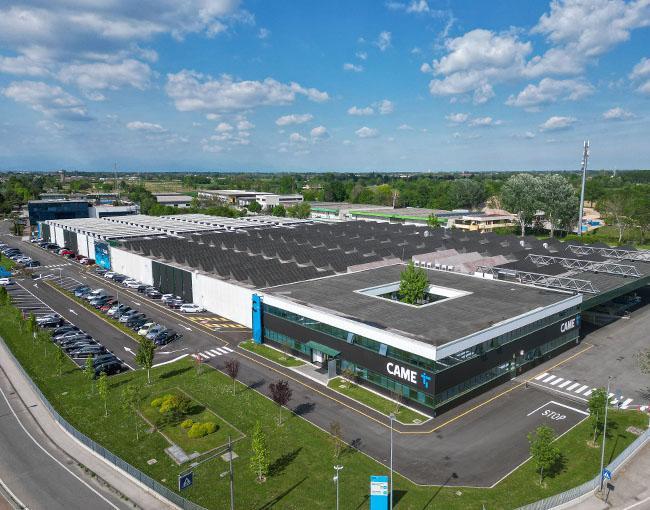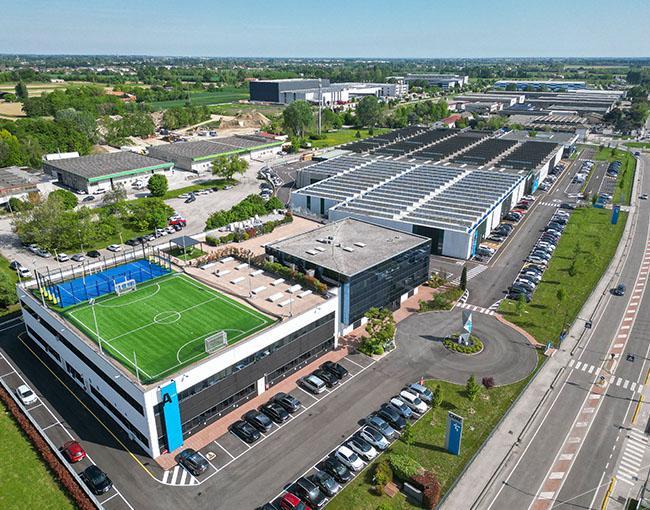CAME has started installing the first 2,000 photovoltaic panels that will cover an area of 4.500 m2 at its Headquarter in Dosson, in the province of Treviso: when fully operational they will produce 1.2 GWh per year of sustainable energy. Latest-generation climate systems are also being installed throughout the headquarters.
The new photovoltaic system, which will be expanded over the coming months with additional panels, and the innovative, energy-efficient climate control systems will drastically reduce carbon dioxide emissions and lead CAME towards an increasingly sustainable future. The above initiatives belong to the strategic plan that the company has launched in recent years with the aim of improving its environmental impact: a real “roadmap” of energy and technological efficiency that has the ambitious goal of reducing CO2 emissions by 400 tonnes per year. These concrete projects also involve the offices in Europe (UK, Benelux and Poland) where the energy renovation model is being replicated.
"The start of these important energy efficiency initiatives”, comments Andrea Menuzzo, CEO and Chairman of CAME, “confirm CAME's innovative soul and its commitment to pursuing a strategy guided by ethical and responsible choices. Sustainability, in its broadest sense, is for us now inseparable from technological innovation. We set ourselves goals and targets for improvement in several areas, including the design and development of our products, and initiated certification processes that would give us a benchmark against which we could continue to develop our business model".
These objectives include the design of energy-efficient technologies in automation/operation cycles, supply chain efficiency, and the replacement of some metal materials with iso-performing ones with a lower environmental impact. The roadmap also includes the EPD (Environment Product Declaration) certification obtained by CAME, which measures the sustainability of the product and its impact on the environment throughout its life cycle. Preparatory to this was the LCA (Life Cycle Assessment) analysis that evaluated: the production of raw materials and packaging materials, their transport, the semi-finished products production phase, the assembly of components, packaging, distribution, use phase and final disposal.
For years now, CAME has adopted a highly digitalized production model at every phase; this guarantees a reduction in manual intervention, increased responsiveness as well as real-time control, traceability and quality improvement of the entire production process.

